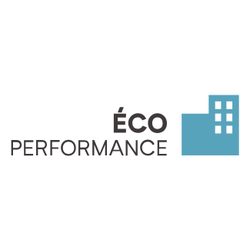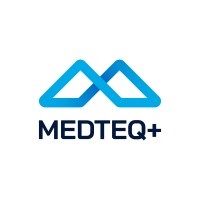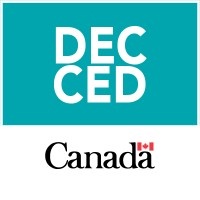
Tax Credit for Pre-Competitive Private Partnership Research
At a glance
- Maximum amount : 3,000,000 $
- Up to 30% of project cost
- Open Date : November 14, 2019
- Professional, scientific and technical services
- Quebec
- For-profit business
- $ 75,000,000 maximum revenue
- All organization sizes
- All groups
Overview
Refundable tax credit of up to 30% for R&D work conducted in partnership with another private company.
Activities funded
The Tax Credit for Pre-Competitive Private Partnership Research is designed to support pre-competitive scientific research and development projects carried out through private partnerships in Quebec. The eligible activities primarily involve research and development efforts that contribute to innovative advancements.
- Conducting pre-competitive scientific research and development projects in private partnership arrangements.
- Partnering with external parties not related by dependence for subcontracted R&D activities.
- Collaborating with non-public entities to explore innovative research opportunities.
Eligibility
The eligibility for this tax credit is defined by specific criteria that the applying company must meet within the specified taxation year.
- The company must operate a business in Canada and have entered into a private partnership agreement to conduct or have conducted on its behalf scientific research and experimental development (SR&ED) work in Quebec.
- The company must obtain an eligibility certification from the Minister of Economy, Innovation and Energy.
- The company must not be affiliated with any public partner and must have no dependency relationship with at least one other partner, apart from the public partner, during the taxation year.
- The company cannot be tax-exempt, a Crown corporation, or a subsidiary entirely controlled by such a corporation.
- The company must not be controlled, directly or indirectly, by a prescribed research entity or have been controlled within the 24 months preceding the date a contract related to SR&ED is concluded, nor be associated with such a controlled company.
- If the company is a member of a partnership, it may apply for the credit for its share of the SR&ED expenses incurred by the partnership.
- If the company is associated with other eligible companies in the taxation year, they must agree on the distribution of the $3 million expenditure limit applicable to the enhanced credit rate.
Who is eligible?
Eligible applicants must be entities that operate a business in Canada and have entered a private partnership agreement to conduct scientific research and experimental development (R&D) in Quebec. Companies must have an eligibility certificate issued by the Minister of Economy, Innovation, and Energy and meet specific criteria regarding partnerships and company control.- Company must carry out an R&D project within a private partnership as part of a precompetitive research agreement.
- Applicant needs an eligibility certificate from the Minister of Economy, Innovation, and Energy.
- The company must not be affiliated with public partners and must have no dependency relationship with at least one non-public partner during the tax year.
- Companies must not be tax-exempt, a Crown corporation, or controlled by a prescribed research body.
- Affiliated companies need to agree on expenditure limit allocation for the enhanced 30% tax credit rate.
- Members of a partnership can claim the credit for their share of eligible R&D expenditures.
Who is not eligible
This grant excludes certain types of companies primarily due to their tax-exempt status or control by certain entities. These restrictions are in place to direct support towards specific operational and ownership structures.
- Companies that are tax-exempt.
- Crown corporations or subsidiaries fully controlled by them.
- Companies controlled, directly or indirectly, by a prescribed research entity or associated with such entities in the past 24 months.
Eligible expenses
Eligible projects for this grant primarily involve scientific research and experimental development activities undertaken through private partnerships. These activities aim to advance pre-competitive research within the province of Quebec.
- Conducting scientific research and development (R&D) through partnerships with private entities.
- Subcontracting R&D work to independent entities within Quebec.
- Collaborating on pre-competitive research projects in various scientific fields.
- Engaging in scientific research projects that are not influenced or controlled by public partners.
Eligible geographic areas
This grant is targeted at companies conducting research activities in specific areas within Canada, with a focus on those operating in Quebec.
- Organizations conducting or commissioning research and development activities within Quebec.
How to apply
Preparation of the required documents
- Obtain the certificate of eligibility from the Minister of Economy, Innovation, and Energy.
- Complete the form RD-1029.8.16.1 for the tax credit.
- Complete the form RD-222 for the deduction of incurred expenses.
- Prepare the form RD-1029.7.8 if the company is associated with other companies.
- Gather a copy of the partnership agreement and the form T661 for RS&ED expenses.
- Provide a document establishing the existence or absence of dependency relationships.
- Include proof of income calculation integrating the tax credit, if applicable.
Registration in the income tax declaration
Transmission of documents
- Attach the forms RD-1029.8.16.1, RD-222, the eligibility certificate, and, if necessary, the form RD-1029.7.8 to the income tax return.
- Send the documents online via authorized software or by mail, ensuring to include the company name, its identification and file numbers, and the closing date of the financial year.
- Ensure that all submitted documents comply with the specified transmission deadlines.
Additional information
Here are additional relevant details for this grant:
- Expenses must be paid at the time of claiming the tax credit.
- If applicable, a copy of the RD-1029.7.8 form regarding the agreement among associated corporations must be submitted.
- The tax credit request will be processed once a valid eligibility certificate is received, even if submitted after the deadline.
- The application can be submitted online using authorized software, alleviating the need to send paper copies.
- If sending documents by mail, they should include the company name, identification numbers, and the financial year-end date.
Frequently Asked Questions about the Tax Credit for Pre-Competitive Private Partnership Research Program
What is the Tax Credit for Pre-Competitive Private Partnership Research?
How much funding can be received?
Who is eligible for the Tax Credit for Pre-Competitive Private Partnership Research program?
What expenses are eligible under Tax Credit for Pre-Competitive Private Partnership Research?
Who can I contact for more information about the Tax Credit for Pre-Competitive Private Partnership Research?
Where is the Tax Credit for Pre-Competitive Private Partnership Research available?
Is the Tax Credit for Pre-Competitive Private Partnership Research a grant, loan, or tax credit?
More programs like this

Research, Innovation and Commercialization Tax Credit (CRIC)
Gouvernement du Québec
NovaScience Program - Support for projects in scientific culture and innovation
Gouvernement du Québec
ÉcoPerformance — Standard Analysis Stream
Gouvernement du Québec
MEDTEQ+ — AVISÉ program
Consortium de recherche et d’innovation en technologies médicales du Québec
Technoclimat
Environnement Québec (MELCC)
NovaScience Program — Support for employment in research and innovation
Gouvernement du Québec
International Climate Cooperation Program (ICCP)
Environnement Québec (MELCC)
Aboriginal Aquatic Resource And Oceans Management (AAROM) Program
Fisheries and Oceans Canada (DFO)
Financial Assistance Program for the Promotion of French – Stream 1
Office québécois de la langue française (OQLF)